Jason Scheff joined Chicago at age 23 when singer/bassist Peter Cetera left the band in 1985 for a solo career. The band continued their winning streak with songs including “Will You Still Love Me” and “What Kind of Man Would I Be?”, both co-written and sung by Scheff, who has remained with the band ever since. Most recently, Scheff co-wrote the title track of the band’s new album Chicago XXXVI: Now. He also co-wrote the 1988 hit Boz Scaggs song “Heart of Mine”.
This interview was for a preview article for the Chicago concert on 9/14/14. It was done by phone on 9/3/14.
Jeff Moehlis: What can we look forward to at the upcoming show?
Jason Scheff: You can look forward to basically opening up your diary [laughs]. Coming to a Chicago show, I always hear from people that it’s an experience where it seems like they just open up their diary, and each song takes them to a place that they’ve been before.
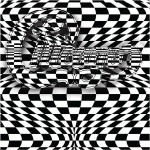
You know, Chicago has been around for 47 years, and we have really three different eras. It’s just amazing to perform for the people who were there from the beginning in the late 60’s through the 70’s, then the 80’s crowd, and now it’s kind of like a combination of those generations bringing their grandchildren along and exposing them to the music that we’ve created over the years. So it really is a feeling of, “Oh, I remember where I was when this song happened.” You know, we’ve got a few little surprises in store for you, too. We have a new album that just came out – we don’t tax the audience and play too much of it, but just a little taste of it. So we’re still active in that way. And some other little surprises.
JM: How did you get the gig playing with Chicago, and how well did you know their catalog when you first joined?
JS: It’s a matter of just being in the right place at the right time. I was 23 years old, a kid from San Diego that had moved up to L.A. around 18, 19 years old, and just loved great songs, loved the radio. So I’d grown up listening to that music like everybody else had. When the opportunity came along, they heard a demo tape of mine and thought that I might be a good fit for the band. So when I went to audition they had me learn a few songs, I can’t remember which ones they were. I think “You’re the Inspiration”, “25 or 6 to 4”, and maybe “Hard Habit to Break”.
And when we were done with those three songs, I don’t remember who said, “Wow, that’s really cool. I wish we would’ve had you learn more songs.” And I said, “Well, let’s play something.” And they said, “Did you learn anything?” And I said, “No, but I’ve heard your music over the years.” And they said, “Really, you want to try something you haven’t played before?” I said, “Sure”, because it’s just like playing in a club band, a Top 40 gig. You know, I’d heard this stuff so much. And it was really funny. They couldn’t believe that I wanted to play something we’d never played before. But it’s in your DNA, when you’ve grown up listening to something so much. So I think that might have scored some points with me, too.
JM: Do you remember what song that was?
JS: Yeah. They said, “What do you want to try?” I said, “Well, how about “Just You ‘n’ Me”. “Have you ever played it before?” I said, “No”, and we played it. I didn’t remember all of it, but most of it, so it was really cool.
JM: So you’ve now been in Chicago longer than Peter Cetera was. But will it ever be possible to overcome being “the new guy”?
JS: No, and I wouldn’t want it that way. It’s funny, whenever people say, “You’ve been in the band longer than Peter had”, I always get a kick out of that. What does that mean? Sure, it means I’ve got a long history with the group, and I’ve got my own piece of some of the history such as “Will You Still Love Me”, which was the first hit that I sang with the band, and luckily that was a huge hit that people know and they associate it as me being part of it. The new album Chicago XXXVI, I co-wrote and produced the title track “Now”. So I have my own era, again, a piece of the legacy.
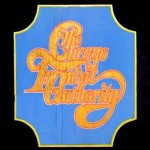
Let me put it this way. When we played the Grammys earlier in the year, I walked up to Robert Lamm as we were about ready to go onstage, because CTA, the first album, had been inducted into the Grammy Hall of Fame. So when I walked up to him, I said, “Thank you for bringing us here.” And he looked at me with this kind of quizzical look on his face. And I said, “Robert, without what you guys did”, and that’s everybody that’s been in the band that’s not here any longer, “without starting that, we wouldn’t be here. So I just wanted to thank you for that.” It was really funny. I said it to the other original members, too, and they were like, “This is yours too, man.” I said, “Hey, I’m not self-deprecating here. What I’m doing is I’m acknowledging the fact that this album was put into the Grammy Hall of Fame, and it was the beginning of what brought us here.” There’s Paul McCartney, Ringo Starr, Yoko Ono sitting in the front row watching us. I will always show so much respect for what these guys did, who’s ever been a part of it.
And Peter Cetera? Come on man, that’s one of the best tenor voices that ever lived, and luckily he’s a friend of mine. We’ve spent a little bit of time together, and he’s told me that he really likes what I do. So it’s funny, yeah. Whenever somebody tells me that, “You’ve been in the band longer than Peter”, I can tell that they’re expecting me to think, “Yeah, well that’s a better position.” Never, never, never. I will always be the new guy, just helping to continue things. It’s just great to be part of the family.
JM: Are you willing to go on record on what your favorite Chicago songs are, say one from before you joined and one from after you joined?
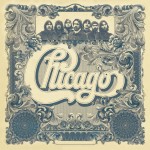
JS: Yeah, I’d have to say “Just You ‘n’ Me”. That song was probably the first thing that I was really exposed to from Chicago, the first song that really lit me up. Because that’s my age – you know, I’m 52. So I wasn’t there at the very beginning, in the late ’60’s, catching on to them, but I guess 1972 or 1973, whenever it was, “Just You ‘n’ Me” and “Feelin’ Stronger Every Day” just lit me up. So I always go back to that. “25 of 6 to 4” is pretty fun, too. Again, I can’t thank these guys enough for handing me that gift that I get to sing it every night we perform.
And then afterwards, I have to say the song “Now”, which is the title track of our new album. I love that. A lot of times artists will say that because it’s their most current work. But give it a listen. It’s a really funky track, and it’s a lot of fun.
Can I give a couple? [laughs] “Will You Still Love Me” has a big place in my heart, too, because that was the first time I got to really hear myself on the radio a lot. We were on MTV, and it was a big turning point, it was a defining moment that I was really feeling comfortable that it was going to work with me being in the band.
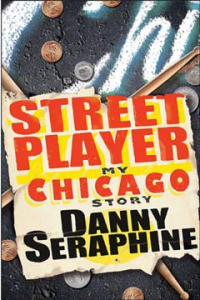
JS: I haven’t read his book, so I can’t say. I know a lot of people that have, and I know that a lot of people enjoyed reading it. But, you know, there’s so many books on my booklist that I don’t know if I’ll ever be able to get to that. There’s just so many in front of it.
JM: Well, you lived part of it, so I guess in some ways you don’t need to read it.
JS: Yeah, I guess.
JM: I also want to ask about your father [bassist Jerry Scheff]. He toured with Elvis Presley, recorded with The Doors, just an amazing amount of stuff. Do you find his resume to be more inspiring or more intimidating when you think about it.
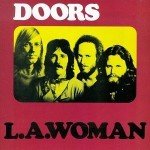
JS: What a great question. You know, it’s funny, when you ask people who have had a career like that, or anybody, I think everybody thinks that they could’ve done more. You know, because I’ve heard him speak about the things that might not have happened, such as The Doors’ L.A. Woman – apparently they wanted him to join the band, but unfortunately Jim Morrison passed away so he didn’t get to fulfill that. It’s funny, because having heard from him and kind of getting the feeling that he’s very proud of what he’s done but, you know, how much more he could’ve done – from my perspective, that’s pretty massive, it’s pretty immense. Elvis Presley, The Doors, and not just those artists but the body of work that they did, too.
So, intimidating? It’s funny, we kind of have this mutual admiration society for each other. You know, he’s told me that I do some things that he doesn’t do, and obviously he does things that I don’t do. But the fact that I’ve had a career as a singer, he’s always told me he really looks up to that. So, I think maybe if I’d never really done much, but just keep music as a hobby, it might be intimidating to look at his career. But it almost feels like we’re kind of in the same club, which is funny to say, because, again, if I’m going to be putting the lens toward me, I would say there’s no way I could come close to anything that he’s done, because that’s just so meteoric and iconic. Elvis Presley, I mean, c’mon. But then there are people when they look at us, they’re saying that’s pretty iconic and meteoric, you know, Chicago, a career that’s almost 50 years.
How’s that for a long-winded answer?
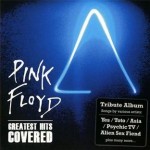
JM: That’s great! One non-Chicago question. When I was reading about you, I saw that you were on a recording for a Pink Floyd tribute album of the song “Run Like Hell”, so I tracked down a copy of that. It’s very cool, with Dweezil Zappa and Tony Kaye and others. How did you get involved with that?
JS: Again, it’s funny, that’s Top 40 music to me. It’s music that I didn’t write or record, but just great songs. That was what was so cool about being in bands coming up, and I encourage any young musicians to get into a group that’s playing great songs, Top 40 music or classic rock music. When I was living in L.A., there would be people, I think it was Bob Kulick, who’s Bruce Kulick’s brother, the guitar player for KISS for a while. Bob and a bunch of these other guys that were involved with groups like Yes and the rocker crowd, they would be working on these little side projects, and it was so cool. So he called me to do that one, and I didn’t think much of it. I love Pink Floyd, but I wasn’t like a freak fan. But I’d go in there and hear the record, and the track’s so inspiring that I do my best to sing on it. I’ve had more people tell me that that version of that song, they couldn’t believe that I was a part of it and that I could sing like that. Well, again, just like getting the gig with Chicago, I’m just performing the music as I hear it.
Another thing that he had me sing, I think it was Bob but it might not have been Bob, was a tribute that was a remake of Queen’s “You’re My Best Friend” [on the album Stone Cold Queen]. That was pretty fun, because I did all the vocals like Freddie used to do – I mean he didn’t always do all the vocals – but I did this. And then I did one where I just played bass. I got to play with Aynsley Dunbar – it was a version of “Crazy” by Aerosmith [on the album One Way Street]. Those were so fun, and those guys would always put those things together. It’s just a blast.
JM: What advice would you give to an aspiring musician?
JS: I would say to play with as many different types of musicians that you can. It’s so important to be versatile and adaptable.
You know, I’ve been listening to some of my early vocal lessons with the great vocal coach Seth Riggs. When I look back on this, because I’ve actually been documenting a lot of this, I’ve kept all of these audio files. I’m really myself getting off into an educational mindset to take to young artists. If they’re interested in checking any of this they can always go to my website jasonscheff.com, because I’m about ready to start putting this stuff out there. Now I’ve gone back and seen what happened for me. You know, I was just trying to get a gig, like any musician. I want to work, I want to get out there and play with bands. So when I got with people like Seth Riggs, he was basically telling me, “Just be prepared.” And part of that was going and getting instruction, and then all of a sudden, once the gig came along, you’re ready for it.
Because I had no idea that I would be singing love songs. I kind of wanted to be a rocker, but I didn’t really have that kind of voice. I wanted to be Lou Gramm or someone like that, but that’s not my voice, or Paul Rodgers. I’ve got more of a pure voice, almost like David Gates [from Bread], who people have compared me to, as far as not having grit and growl to my voice.
But being prepared. So as a bass player I just played in as many bands as I could, and with as many different types of drummers also, so that you’re ready, you can adapt. I shouldn’t say that there’s nothing worse, but in my opinion, it’s somebody who’s really great but that’s kind of stuck in one either genre or style or feel or anything. If they’re lucky enough to make something happen with that, and some people are – I don’t think Bob Dylan was out there playing in a lot of Top 40 bands. Who knows, maybe he was. But I would say really get as much experience playing with different things and people, so you’re ready.
JM: What are your plans, musical or otherwise, for the near future?
JS: What’s nice is that we, as a band with Chicago, we’ve really gotten very creative. Well, we’ve always been creative, but we’ve actually been putting it together just like what happened when this opportunity to put an album out came up. We were ready, because we’ve been constantly writing and recording. So I think there’s going to be a lot more of that. I know for me personally, I’ve gotten super itchy to go through a big songwriting phase again. I started going out to Nashville in the early 2000’s, and that really was another renaissance for me. I wrote a ton of songs, and now I’m starting to get itchy again, because I haven’t really written a lot in the last couple of years.
But there have been so many neat things going on. Kevin Cronin and I were actually talking about writing some stuff together, the lead singer of REO Speedwagon, because we just finished a five week tour with them. I think there’s going to be a lot of new material coming out.
JM: Where are you speaking to me from?
JS: I’m in Utah right now. I split my time Nashville/Utah, so right now I’m taking a break out here.

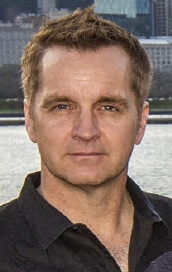
Discussion
No comments for “Interview: Jason Scheff”